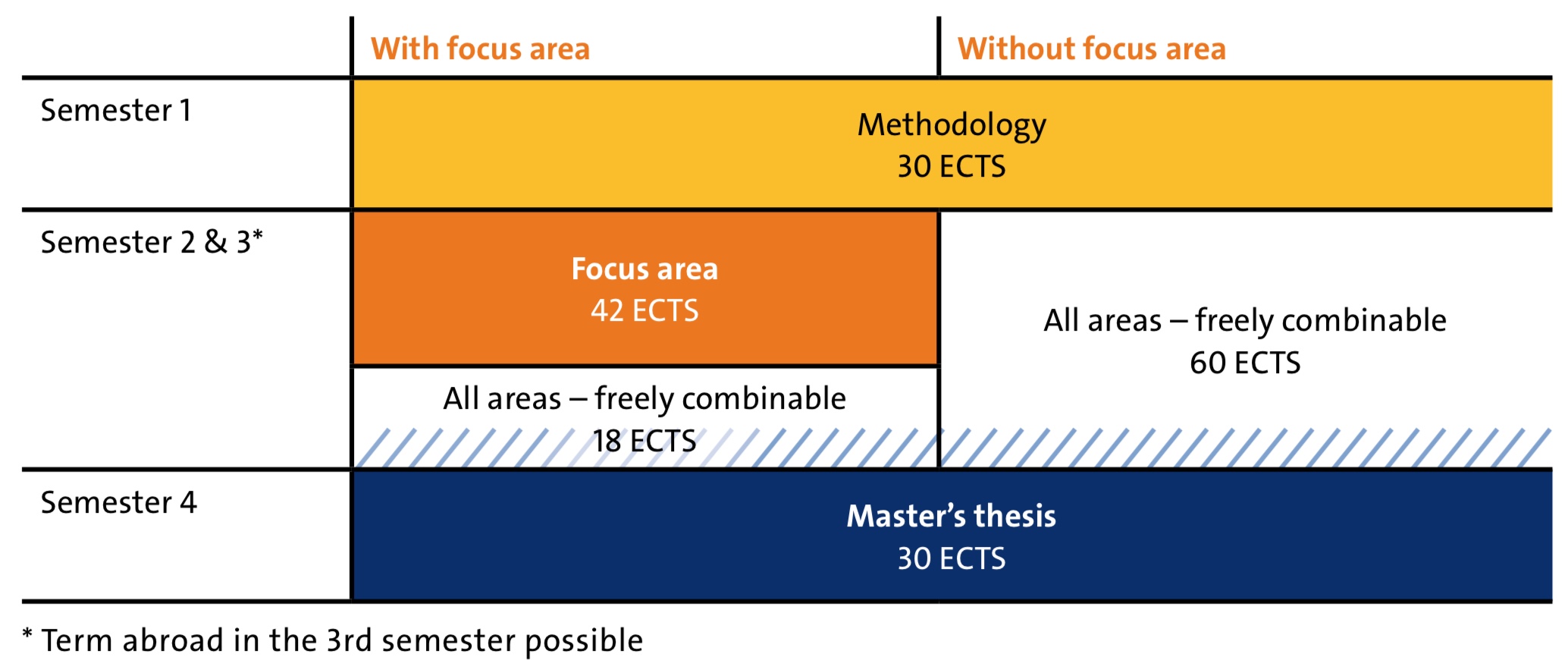About the Master of Arts in Linguistics
Table of contents
- Program Overview
- Learning Outcomes
- Prerequisites / Admission Requirements
- Why study with us?
- Curriculum / Structure of the program
- Focus areas
- Who This Program is For
- Career Prospects
- Language and Format
- Meet us at the Master Information Days - March 2026
- Application and Contact
- Additional Information / FAQs / Links
Program Overview
The Master in Linguistics at UZH is a specialised mono‑master degree comprising 120 ECTS credits. It offers a broad academic framework that integrates theoretical, empirical, and methodological training in linguistics. The programme places a strong emphasis on contemporary methodological skills, particularly in collecting, processing, and analysing digital linguistic data.
Students may choose to specialize in one of ten focus areas, including the possibility to complete the program without selecting a focus area, allowing for a broader and more individualized course of study.
Further study-relevant information can be found in the corresponding Studies section.
Learning Outcomes
Students in the programme will:
-
Acquire advanced skills in linguistic data collection and statistical analysis.
-
Learn data processing methods for both textual and spoken language corpora.
-
Gain foundational programming skills (e.g., Python and R) for language technological applications.
-
Develop competencies applicable across a range of linguistic subfields and research questions.
Prerequisites / Admission Requirements
Please find more information on the prerequisites and how to apply to the program here:
Prerequisites & How to apply
Why study with us?
Linguistics in Zurich benefits from a strong institutional and research environment. The program is part of the Zurich Center for Linguistics, a collaborative network that brings together linguistic research and teaching in and around Zurich. This network of institutes and individuals offers access to a broad range of expertise, research groups, laboratories, and ongoing projects in theoretical, empirical, and computational linguistics. Students thus study within a vibrant academic community that supports interdisciplinary collaboration and provides opportunities to engage with current research.
Zurich Center for Linguistics
LiRI - Linguistic Research Infrastructure
In addition, the program allows students to qualify for a teaching diploma (Lehrdiplom) in at least one school language, thereby expanding professional opportunities in education and further demonstrating the versatility of linguistic training.
Curriculum / Structure of the program
The program consists of the following elements:
- 30 ECTS in mandatory methodological training
- Language Data Acquisition
- Language Data Processing
- Quantitative Methods
- 42 ECTS in your chosen focus area
- 18 ECTS of free choice from within the program
- 30 ECTS Master's Thesis
Focus areas
Selecting a focus area means that most coursework will be completed within that area. Students may, however, take up to 18 ECTS from other areas to broaden their profile. Students opting for the general “Linguistics (no focus area)” track complete modules from at least three different groups; the specific combination is left to the student’s discretion.
Detailed requirements for each focus area can be accessed via the corresponding links in the table below.
Who This Program is For
The Specialized MA in Linguistics is intended for students with a research-oriented interest in linguistic questions across a range of subfields. The program enables students to pursue one of ten specialization areas while still allowing flexibility to explore other domains.
Because only 21 ECTS in linguistics are required for admission, the program is accessible to students without a Bachelor’s degree in linguistics. Depending on the chosen focus area, the program can be completed entirely in English, making it suitable for both Swiss and international students.
Career Prospects
Graduates are well‑equipped for:
-
PhD programmes in linguistics or computational linguistics.
-
Research positions in academia and research institutions.
-
Industry roles involving language data, text analytics, computational linguistics, natural language processing, and language technology.
-
Educational roles; the programme also enables students to qualify for a teaching diploma (Lehrdiplom) in at least one school language.
Language and Format
-
The programme may be studied fully in English for most focus areas. Some modules are taught in other languages depending on the focus area (e.g., Romance Linguistics in French/Italian/Spanish, LIS predominantly in German or Dutch).
-
Please check the individual focus areas for information on language of instruction
-
-
The standard duration for full-time study is four semesters.
-
It is of course possible to study part-time. In this case, the duration of your studies depends on your preferred workload per semester.
-
This program is an in-person program.
Meet us at the Master Information Days - March 2026
Join the Master Information Days in March 2026 to learn more about the MA Linguistics.
Information about the event will be posted on here:
Master Information Days 2026
Application and Contact
Applications are submitted online through the UZH Admissions portal. Applicants should prepare all required documents (transcripts, motivation letter, academic work, etc).
Admission to the Master's Program
For programme‑specific inquiries, the study advisor can be contacted at:
linguistics‑ma [at] linguistik.uzh.ch.
